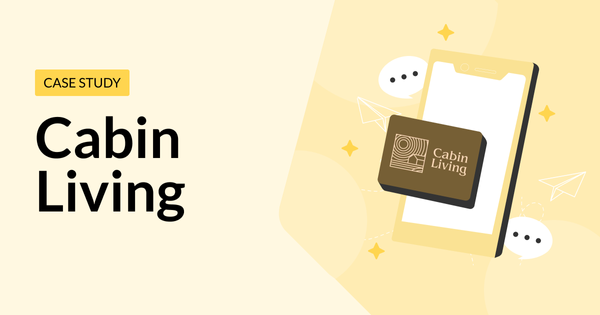Airbnb Investment Strategy: Pros and Cons to Know About

Investing in Airbnb continues to be a profitable strategy even beyond the pandemic. As of the end of 2023, hosts collectively earned more than $57 billion. This figure underscores a significant growth in earnings for hosts compared to previous years. This ongoing increase in host earnings suggests that the platform remains a vibrant and lucrative option for those considering investment in property for short-term rentals.
While investing in Airbnb rentals can offer substantial rewards, there are also some risks involved. So, to ensure that you embark on this venture with eyes wide open, check out these suggestions for buying a rental property and maximizing your rental income.

What Is Airbnb Investing?
Airbnb investing refers to when an investor buys a property with the purpose of listing it (or individual rooms) on Airbnb, as opposed to using it as a primary residence. Unlike a traditional rental model, an Airbnb property allows real estate investors to generate rental income from various properties and renters.
Airbnb vs. Traditional Real Estate Investing: Pros and Cons
Real estate investors won’t opt for an Airbnb investment as the only strategy. You can also go for traditional real estate investing. Traditional real estate investing refers to buying a property with the purpose of renting it out on a long-term basis (usually for a period of six months and longer).
Before you decide to jump into Airbnb rental investing, make sure to consider all the pros and cons of this strategy over traditional real estate investing.
Pros of Airbnb Investing
A great source of passive income
As Airbnb and other vacation rental platforms have become more popular in recent years, there are more opportunities for property owners to generate a stream of passive income. While it does call for continuous hard work, short-term rental investing is still a viable investment strategy that allows Airbnb hosts to build a fortune. The secret of handling multiple responsibilities is using tools and software solutions that can help automate the bulk of your daily tasks.
More lucrative than traditional real estate investment
As you can typically charge more per night, you can generate more profit compared to traditional real estate investing. According to FortuneBuilders, an Airbnb property that is operated efficiently can make two to three times the revenue compared to an unfurnished, long-term rental.
In recent updates, the average nightly rate for Airbnb stays in the U.S. has seen an increase. As of 2023, the estimated average daily rate for short-term rentals was around $278. This represents a trend of rising rates from previous years, reflecting perhaps both an increase in demand and adjustments in pricing strategies by hosts.
You can use your vacation home for your own purposes
While you should not let your personal agenda fuel your Airbnb investment, the ability to use your rental properties as a vacation home remains an attractive additional perk. As an Airbnb host, you will also be able to use your rental as a second home. All you have to do is to block certain dates on your Airbnb calendar.
A diversified portfolio of tenants
If you are lucky to find a tenant that pays monthly rent on time, renting your property to a long-term tenant has its advantages. However, when your tenant pays late or fails to pay rent for one month altogether, the repercussions can be felt for a while.
On the other hand, with Airbnb investing, you collect income from various tenants regularly. This means that each renter is responsible for only a part of your income which can reduce the overall effect of issues with a renter.
More control over your home than with traditional renting
While it requires more work and has higher expenses, it can be easier to manage the maintenance. As you will welcome new guests more often, you will be informed about any maintenance issues sooner giving you more control over your home.
Also, when running an Airbnb rental, you can change your prices regularly and increase them during the high season or events. This means you have greater control over your pricing policy as well.
More choice when it comes to the type of guest you want to attract
Hosts can also choose to be more selective about the type of guests that they want to target. This is not the case with landlords who usually have to market their properties to the general population.
Cons of Airbnb Investing
Higher expenses
When you rent to long-term tenants, you are much less involved in their renting experience and you will only be responsible for maintaining the property and the odd emergency. However, as a rental property owner, you’ll have to spend more to provide a brilliant experience to your Airbnb guests.
For example, some of the regular expenses of an Airbnb host include:
- High-quality furniture
- Decor
- Linen
- Towels
- Kitchen utensils
- Additional amenities to delight guests like some standard food items
- Wi-Fi
- Cleaning fees
- Utilities
When you just start your hosting business, you should also take into account startup costs. You will have to spend more on proper insurance, and invest in professional photography for your listing.
Airbnb rental rules and Airbnb regulations
In many cities, local authorities are instituting harsh rules and regulations relating to Airbnb. These laws can often make it difficult to boast a high occupancy rate as they can limit how many days per year you may rent out your property.
Irregular income
While a short-term rental can yield more profit, your cash flow could be more inconsistent. For starters, you probably need a few vacant dates per month for repairs or preparation. Secondly, seasonality also plays a huge factor in an Airbnb investment.
Finding guests
When you are a beginner investor, it will be harder for you to find guests as you will most likely still have only a handful of five-star reviews. To grow the number of your reviews, don’t hesitate to ask your guests to leave you a review.
To ensure that your calendar is regularly filled in, you will have to market your Airbnb rental. From creating an outstanding listing to being active on social media, you will have to learn and use various tactics to attract new and recurring bookings.
More work on a day-to-day basis
Airbnb rentals require more work on a day-to-day basis. It will be your responsibility to see to it that your property is always ready and everything is in perfect working condition unless you hire an Airbnb property management company.

How Do You Find the Best Property for an Airbnb Investment?
1. Do thorough market research
It is key that you search for a destination that attracts a large number of travelers, preferably during the whole year. Ideally, you want to purchase a property that is within walking distance of a host of attractions and activities.
Once you have identified a possible location, be sure to research the laws and regulations regarding short-term rentals in that area. The reality is that local authorities in a number of destinations all over the world have been introducing laws and regulations to limit or, in some cities, prohibit Airbnb. Thus, before purchasing any properties, complete thorough market research by consulting local government websites and other credible sources.
2. Keep seasonality and destination in mind
The truth is that not all destinations turn out to be equally profitable. Destinations where hosts can buy a property for comparatively little, but enjoy a regular demand among travelers are ideal. For example, a town like Lahaina in Hawaii offers agreeable temperatures all year round, making it one of the most profitable destinations according to AirDNA.
3. Estimate potential earnings and expenses
To help ensure that you can afford your property, you should estimate your potential earnings and expenses (including all the hidden costs associated with maintenance too). This will help you to stay within the budget when considering a new investment opportunity.
4. Use analytical software tools
Tools like AirDNA and Mashvisor can make the whole process much easier. For example, AirDNA offers a tool that lets you calculate the average daily rates. Mashvisor also offers a reliable Airbnb investment calculator that you can use to work out key ROI metrics like cash flow and cap rate.
5. Get advice from Airbnb business consultants
It is not always as straightforward to identify which cities will be good areas in which to invest. In some instances, a popular tourist destination’s market is already saturated. In fact, some of the most profitable areas might not have been on your radar at all. Airbnb business consultants will help you to identify areas that you might have missed and offer valuable tips for finding the best Airbnb investment property to match your profile.
How to Maximize Your ROI
Focus on your target guest
To set up your business for success, it is important to have a clear picture of the ideal types of guests that you are trying to target. By knowing who your target guest is, what they like and dislike, it is much easier to manage your Airbnb rentals.
What are their professions? How old are they? Do they travel with their family or as part of a bigger group? For example, if your target guest is a family of four, you need to ensure that your rental is family-friendly, spacious, and offers entertainment options.
Create a business plan
A well-written business plan will help you to create a sensible strategy, determine possible risks, and secure funding to purchase a property or expand your real estate investment. It includes practices, a frame of reference, and goals that will help you to make the right decision in the best interest of your business. Important sections to include in your business plan are:
- Your business goals
- An outline of the history of your short-term rental business
- Your value proposition
- The management structure
- Your financial plan
- An analysis of your target guest
- Competitor research
- A marketing strategy
Market your Airbnb rental
To attract bookings and boost your occupancy rate, you need to have a marketing plan in place. For the best results, you should include both offline and online marketing strategies.
Examples of effective offline marketing strategies include designing and printing flyers and brochures for local tourist boards. Business cards can also still be effective. You can, for example, ask local restaurants, equipment rental companies, and other tourist attractions to share your business card in exchange for recommending their businesses to your guests.
To help grow your online presence, you can create a YouTube channel, post on Instagram, and create a Facebook business page for your property. While it requires some work, it is also a great idea to set up a direct booking website that is optimized for search engines. As you grow your list of past guests, you can also start to use email marketing to send them monthly newsletters about events in your area, new attractions, and special offers.
Consider outsourcing your routine operations
Managing your rental property on your own gives you more control and flexibility. However, this approach will leave you with less time that you can focus on growing your business.
Plus, if you are still new to this industry, you will need to learn a lot about the hosting process. To help you bridge the gap in your knowledge and skills, and save time, it can be a good idea to enlist the services of professionals. At the very least, you will want to outsource your cleaning tasks. It is also advisable to have an assistant who can take care of any onsite problems.
Opt for vacation rental software
In addition to outsourcing certain jobs like cleaning and maintenance to other companies, it is also a smart move to sign up for software that helps manage other aspects of your rental properties. A good software will save you at least several hours per week around there operation for your investment property. By automating as many of your daily tasks as possible, you can grow your business without necessarily having to take on more daily responsibilities.

iGMS can save you time on routine operations like messaging or writing reviews so that you can instead focus on more important tasks like tracking the metrics.
About the Author
Olga Vasylieva is the Content and Social Media Team Lead at iGMS. Olga is on a mission to help hosts and property managers grow their businesses and deliver an excellent guest experience. She is a travel enthusiast and is inspired by life in all its aspects.






